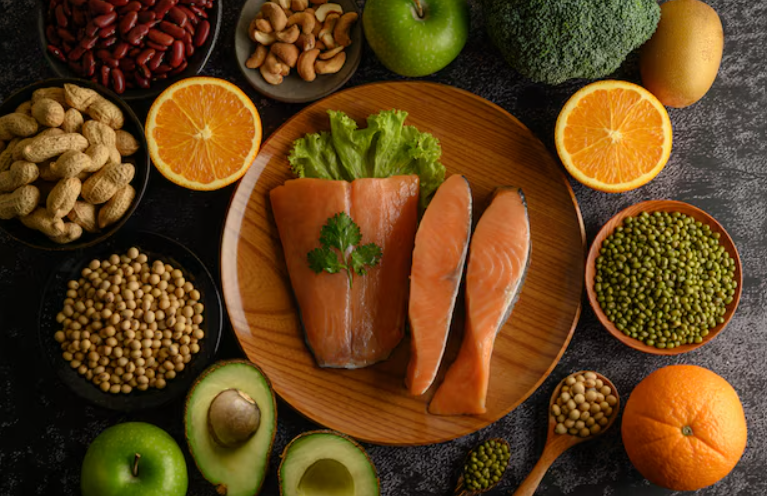Top Plant-Based Sources of Omega-3: Crucial Elements for a Balanced Diet
Omega-3 fatty acids are essential nutrients that are vital for maintaining good health. These fatty acids enhance heart health, reduce inflammation, improve cognitive function, and promote general well-being. Historically, people have associated omega-3 fatty acids with fish, especially fatty fish like salmon and mackerel. However, it is important to note that several plant-based sources of omega-3s can offer the same benefits. These sources do not rely on animal products, making them suitable for those following a plant-based or vegan diet. This comprehensive guide will explore the best plant-based sources of omega-3 fatty acids, their nutritional characteristics, and their health benefits. Whether you want to increase omega-3s in your plant-based diet or are simply exploring healthy, non-animal alternatives, this article provides all the information you need.
The Importance of Plant-Based Omega-3s for Optimal Health
Including plant-based omega-3 sources in your diet is essential for maintaining optimal health, particularly for vegetarians and vegans. Numerous plant-based foods, such as walnuts, hemp seeds, chia seeds, and flaxseeds, are rich in ALA (Alpha-linolenic acid). These foods offer several health benefits, including improved heart and brain function, and reduced inflammation. Algal oil, along with certain types of seaweed and algae, are excellent sources of EPA (Eicosapentaenoic acid) and DHA (Docosahexaenoic acid) for individuals who wish to ensure they are receiving these essential omega-3s. A well-rounded plant-based diet that includes omega-3-rich foods can contribute to long-term health and well-being. Such a diet can reduce the risk of chronic diseases while promoting general vitality. By incorporating these omega-3-rich foods into your daily meals, whether through edamame or adding seeds to your smoothies, you can give your body the vital nutrients it needs to live a long, healthy life.
Omega-3 Fatty Acids: What Are They?
Omega-3 fatty acids are a type of polyunsaturated fat essential for numerous bodily processes. The three main types of omega-3 fatty acids are ALA, EPA, and DHA. ALA is predominantly found in plant-based sources, whereas EPA and DHA are typically found in marine life, such as fish. Although the body can convert ALA into EPA and DHA, this conversion process is not highly efficient. Therefore, it is crucial for those following a plant-based or vegan diet to ensure they are getting enough ALA to meet their omega-3 requirements. A deficiency in omega-3s can result in issues like inflammation, joint pain, heart disease, and cognitive decline.
What Makes Omega-3s Vital?
Omega-3 fatty acids offer a wide range of health benefits, including:
- Heart Health: Omega-3 fatty acids reduce triglyceride levels, lower blood pressure, and prevent blood clots. They are also linked to a lower risk of stroke and heart disease.
- Brain Function: DHA is crucial for brain health. Omega-3s are known to improve memory, mental clarity, and cognitive function. They may also reduce the risk of mental health conditions, such as anxiety and depression.
- Inflammation: Omega-3 fatty acids help control chronic inflammation and ease joint pain and stiffness. They can benefit individuals with arthritis and other inflammatory conditions.
- Skin and Eye Health: Omega-3s support skin and eye health. They can help maintain skin moisture and lower the risk of dry eyes and macular degeneration.
Top Plant-Based Sources of Omega-3 Fatty Acids
1. Chia Seeds
Chia seeds are among the best plant-based sources of omega-3 fatty acids, especially ALA. Just one ounce (28 grams) of chia seeds provides about 5 grams of ALA, which covers almost 300% of the recommended daily intake for most people. Chia seeds are not only high in omega-3s but also rich in fibre, protein, calcium, and antioxidants. Their versatility makes them ideal for a variety of recipes, including baked goods, smoothies, muesli, and salads. One easy way to enjoy chia seeds is by making chia pudding, where you soak them in water or plant-based milk overnight.
2. Flaxseeds
Flaxseeds are another excellent plant-based source of omega-3s. Like chia seeds, they are high in ALA, with 1 tablespoon of ground flaxseed providing 2.4 grams of ALA. Flaxseeds are also rich in protein, fibre, and lignans, which offer antioxidant benefits. To gain the full health benefits of flaxseeds, it’s best to consume them ground, as whole flaxseeds may pass undigested through the digestive system. Ground flaxseed can be easily added to smoothies, yoghurt, cereal, or baked goods like bread and muffins for an extra nutritious boost.
3. Walnuts
Walnuts are one of the few nuts that are exceptionally high in omega-3 fatty acids. One ounce (about 14 halves) contains approximately 2.5 grams of omega-3s, primarily ALA. Walnuts are a fantastic source of omega-3s, protein, fibre, vitamin E, and magnesium. Including walnuts in your diet can help reduce inflammation, improve heart health, and enhance cognitive function. You can enjoy walnuts as a healthy snack or add them to salads, cereal, or porridge. Walnut oil is also a great addition to salad dressings or for cooking.
4. Hemp Seeds
Hemp seeds are another great plant-based source of omega-3s. A 3-tablespoon serving of hemp seeds contains about 2 grams of ALA. These seeds are also high in iron, magnesium, vitamin E, and complete protein, which includes all nine essential amino acids. You can sprinkle hemp seeds on salads, mix them into smoothies, or add them to yoghurt for a nutty flavour. You can also make hemp seed butter, a healthy and delicious alternative to traditional nut butters.
5. Algal Oil
It is one of the few plant-based oils that contains both DHA and EPA, the types of omega-3s typically found in fish. Algal oil is derived from algae and serves as a vegan alternative to fish oil supplements. It is a popular choice for those following a plant-based diet and is available in supplement form to boost omega-3 intake. Due to its high DHA content, algal oil is beneficial for brain and eye health. It is also easier to digest than fish oil, making it a great option for individuals with sensitive stomachs.
6. Edamame
Edamame, or young soybeans, are a great source of plant-based protein and omega-3 fatty acids. One cup of cooked edamame contains approximately 0.3 grams of ALA. Edamame is also rich in calcium, iron, fibre, and vitamin K, making it a healthy addition to a plant-based diet. You can enjoy edamame as a snack, toss them into salads, or incorporate them into stir-fries and other recipes.
7. Brussels Sprouts
While Brussels sprouts are not as high in omega-3s as seeds and nuts, they still contribute to a plant-based omega-3 diet. One cup of cooked Brussels sprouts contains about 0.2 grams of ALA. In addition to omega-3s, Brussels sprouts are packed with fibre, vitamin C, vitamin K, and antioxidants, all of which support immune function, digestion, and overall health. Brussels sprouts can be sautéed, roasted, or steamed, and make a great addition to salads or as a side dish.
8. Algae and Seaweed
Certain types of seaweed and algae are excellent sources of omega-3s, particularly EPA and DHA. Algae such as nori, spirulina, and chlorella are rich in omega-3s as well as other essential nutrients, including protein, iron, and vitamin B12. Omega-3s from algae are commonly available in supplements but can also be added to smoothies, eaten in salads, soups, or enjoyed in sushi (nori). For those who do not consume fish but wish to obtain DHA and EPA from plant sources, algae omega-3 supplements are a great alternative.

